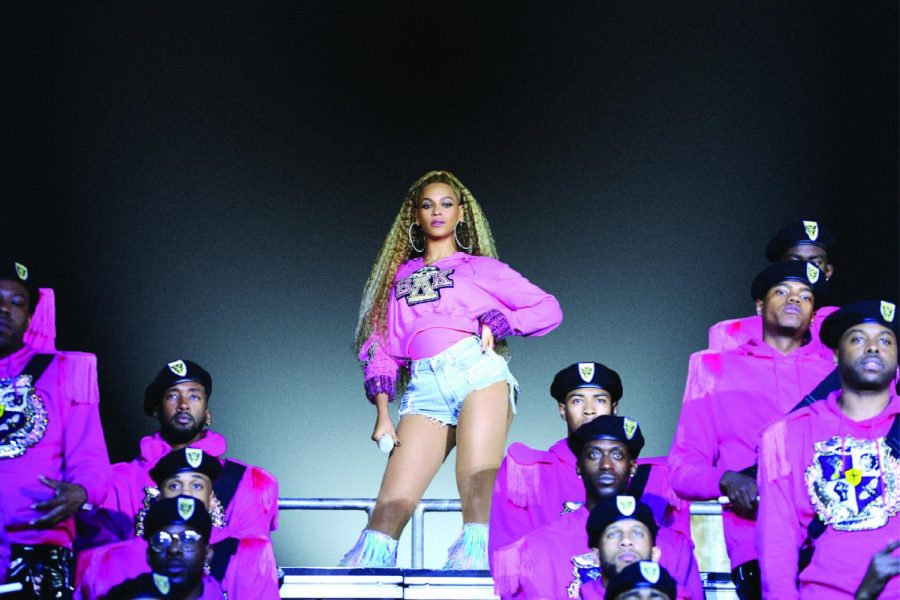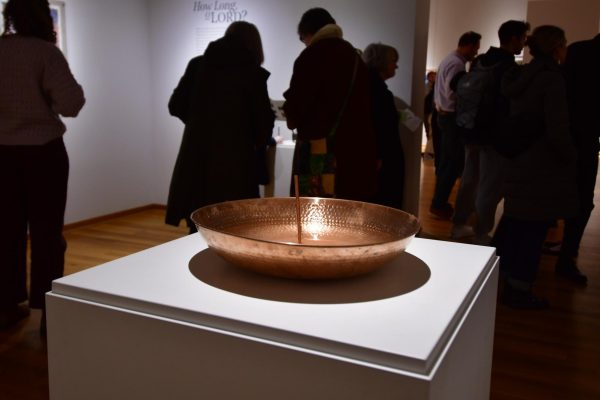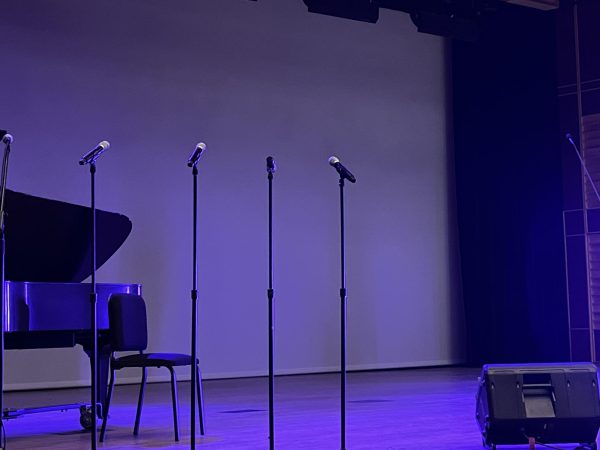Beyoncé pulls a Beyoncé, drops “Homecoming” on Netflix
Beyonce atop a pyramid of her self titled “black orchestra” in one of her two two-hour performances.
If you haven’t heard of “Homecoming,” the new Beyoncé Netflix documentary, you aren’t entirely to blame. In the typical fashion that coined the phrase “pulling a Beyoncé”, she released yet another body of work with virtually no promotion. The two-hour documentary revisits Beyoncé’s historical 2018 Coachella performance and takes us behind the scenes, dissecting the intentionality with which she put together her two-hour set, infusing it with black culture, and paying homage to America’s Historically Black Colleges and Universities (frequently referred to as HBCUs).
For the first time in my four years since moving from Uganda to America, as I watched “Homecoming” I didn’t feel lumped in as part of the black monolith whose experience and understanding of blackness was universal. The documentary sets the stage for the multifaceted richness, beauty, struggle and pride unique only to African Americans. Beyoncé invited me to sit back and enjoy a culture born of history I don’t share, and for that I am ineffably grateful.
For the uninitiated, here is some background information: last year Beyoncé performed at Coachella, arguably the most popular and certainly the most expensive music festival this side of the Atlantic. As CNN aptly states, Coachella has historically been a “predominantly white space,” and in the festival’s 20-year history, she was the first black female artist invited to headline the show. Understanding the platform she had, Beyoncé took the liberty of not only putting American black culture on full display, but, for short renditions, additionally bringing on crowd favorites like the rest of Destiny’s Child, her sister and singer Solange, and her husband and rapper Jay Z.
“Homecoming” details the eight months of grueling singing and dance rehearsals and gives us a glimpse at Beyoncé’s reputation for detail oriented perfection. It documents how she had a hand in every single decision about every aspect of that two-hour performance, from hand picking the singers and dancers and drumline members down to deciding what beading she wanted for each costume. At a point during the documentary, as if to explain her insistence on calling every shot in addition to rehearsing for eight months for a two-hour performance, she says, “I respect things that take work; I respect things that are built from the ground up.”
Beyoncé’s pride for HBCUs was at the center of her Coachella performance and by extension the center of the documentary. She paid homage to many African American icons and intellectuals who attended HBCUs like Howard University and Spelman College.
As one might imagine, bringing all this African Americaness to Coachella, unprecedented as it was, was not of small concern to certain members of the Beyoncé camp. Tina Knowles, her mother, later admitted in an Instagram post that she told Beyoncé she was afraid the predominantly white Coachella audience would be confused by all the black college culture on display, to which Beyoncé responded, “I have worked very hard to get to the point where I have a true voice and at this point in my life and my career I have the responsibility to do what’s best for the world and not what is most popular.”






